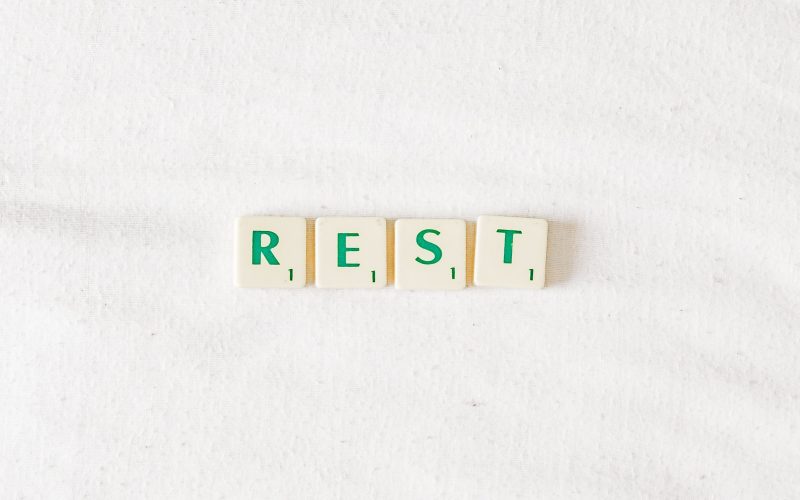Are you feeling tired, unmotivated, and burnt out? It may be time to give your brain a break. As much as we all strive to be productive and efficient, our brains can only take so much before they start begging for rest. In this blog post, we’ll discuss the importance of recognizing when your brain needs a rest and how taking breaks can actually improve productivity in the long run. So grab a cup of coffee (or tea!) and let’s get into it!
The Different Types of Rest
There are different types of rest, each with their own benefits. Here are some of the different types of rest:
1. Physical Rest
Physical rest is important for your body to recover from physical activity. When you physically rest, your body has a chance to repair any damage that has been done to your muscles and tissues. This type of rest is also important for preventing injuries.
2. Mental Rest
Mental rest is important for your brain to recover from mental activity. When you mentally rest, your brain has a chance to process information and consolidate memories. This type of rest is also important for reducing stress and preventing burnout.
3. Emotional Rest
Emotional rest is important for your mind and body to recover from emotional stress. When you emotionally rest, you have a chance to process your emotions and let go of any negative feelings. This type of rest is also important for maintaining your mental health and well-being.
The Benefits of Resting
It is widely known that getting a good night’s sleep is important for both our physical and mental health. But what happens when we don’t get enough sleep? According to the National Sleep Foundation, not getting enough sleep can lead to a number of health problems, including weight gain, depression, and even heart disease.
But what about when we’re not sleeping? What happens to our brains when we’re awake and not getting the rest we need?
According to a recent study, when we don’t get enough sleep, our brains actually start to eat themselves. The study, which was conducted by researchers at the University of Rochester Medical Center, found that when mice were sleep-deprived, their brains began to consume neural connections.
The researchers believe that this process may be one of the mechanisms behind the cognitive decline that is often seen in older adults.
So what does this mean for us? Well, it’s important to recognize when your brain needs a rest. If you find yourself feeling tired during the day or struggling to focus on tasks, it may be time to take a break. And if you find yourself frequently skipping out on sleep, it may be time to reevaluate your lifestyle.
How to Tell When Your Brain Needs a Rest
When you’re constantly on the go, it’s easy to forget that your brain needs a break too. Just like your body, your brain can become fatigued and overworked if you don’t give it time to rest and recover.
So how can you tell when your brain needs a break? Here are some common signs:
1. You’re having trouble focusing or paying attention.
2. You’re feeling overwhelmed or stressed out.
3. You’re forgetful or making more mistakes than usual.
4. You’re feeling irritable or cranky.
5. You have trouble sleeping or are experiencing fatigue during the day.
If you notice any of these symptoms, it’s a good idea to take a break and give your brain some time to relax and rejuvenate. Taking some deep breaths, going for a walk outdoors, listening to calming music, or reading a favorite book can all help reduce stress and restore focus.
Ways to Help Your Brain Rest
When you’ve been going non-stop all day, it’s important to recognize when your brain needs a rest. There are several ways you can help your brain relax and rejuvenate itself.
One way to help your brain rest is by getting enough sleep. Most people need around eight hours of sleep per night. If you’re not getting enough sleep, your brain will be working overtime trying to function properly.
Another way to help your brain rest is by taking breaks during the day. If you’re feeling overwhelmed or stressed, take a few minutes to yourself to relax and rejuvenate. You can take a quick walk, meditate, or even just take some deep breaths.
Finally, another way to help your brain rest is by eating healthy foods. Foods that are high in sugar and unhealthy fats can actually make your brain work harder and feel more sluggish. Instead, focus on eating plenty of fruits, vegetables, and whole grains. These healthy foods will give your brain the nutrients it needs to function at its best.
Conclusion
Taking regular breaks and giving yourself time to rest your brain is essential for productive work. Our minds can only handle so much before reaching exhaustion, so taking frequent rest times throughout the day is necessary in order to stay focused and productive. Recognizing when it’s time for a break can help you to prevent burnout, keep your mind sharp, and maximize productivity. So next time your brain feels like it needs a break, don’t be afraid to take one – you might just find that it helps!












